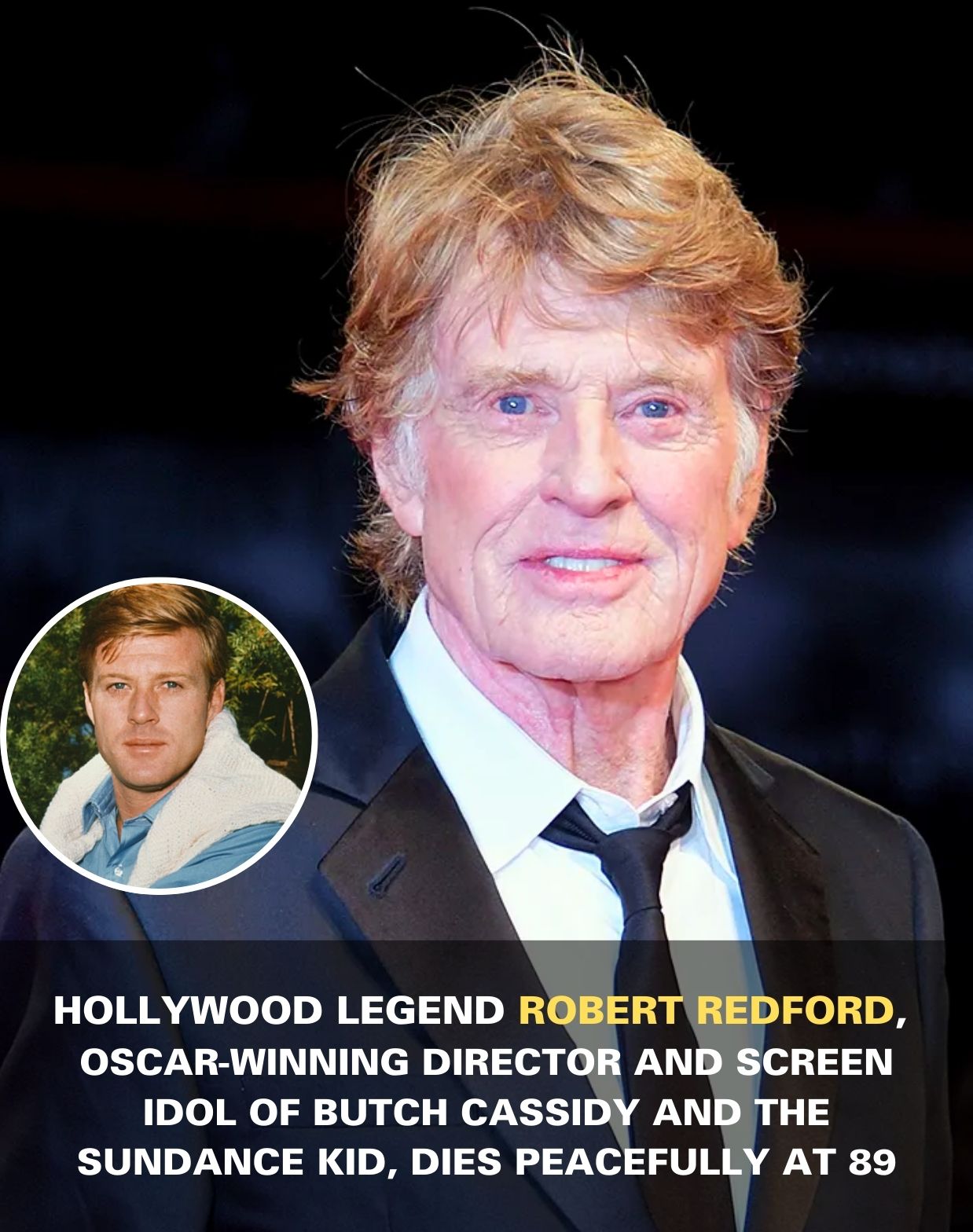The news arrived like a hush across the film world: Robert Redford, the Oscar-winning director, actor, and visionary whose career spanned over six decades, has died peacefully at his home in Provo, Utah. He was 89 years old.
To millions, Redford was not just a movie star but a symbol of a generation—an artist who embodied grace, resilience, and creativity. Known around the world for his performances in Butch Cassidy and the Sundance Kid and The Sting, Redford left behind a legacy that forever altered the landscape of both Hollywood and independent film.
Born Charles Robert Redford Jr. in Santa Monica in 1936, his early life was far from glamorous. After losing a baseball scholarship, Redford’s dreams of an athletic career collapsed, forcing him to search for another path. That unexpected turn led him first to the arts and eventually to acting. It was a choice that would shape not only his own destiny but also the future of cinema itself.
His early success on television and Broadway soon brought him to the attention of Hollywood. With Barefoot in the Park in the late 1960s, audiences first caught a glimpse of the charisma that would make him unforgettable. But it was the 1969 film Butch Cassidy and the Sundance Kid—a pairing with Paul Newman—that turned him into a global sensation. Redford himself once admitted he thought the film might fail, particularly because of its unusual tone and even a musical number. Instead, it became a cultural touchstone, cementing him as the Sundance Kid—a role so iconic that it lent its name to the independent film movement he would later champion.
Throughout the 1970s and 1980s, Redford redefined what it meant to be a leading man. Films like The Way We Were, All the President’s Men, and Out of Africa showcased not only his striking screen presence but also his ability to channel vulnerability, intelligence, and conviction. He was more than just a star—he was a storyteller, bringing depth to characters who mirrored the challenges and complexities of the times.
Yet Redford was determined not to remain confined to acting. In 1980, he directed Ordinary People, a searing family drama that earned him the Academy Award for Best Director. That victory confirmed what many already knew: Redford’s artistry was not limited to the roles he played. It extended to the stories he shaped, the filmmakers he nurtured, and the vision he carried for a more diverse and daring film culture.
That vision came to life most powerfully through the Sundance Institute and Sundance Film Festival, founded in Utah. What began as a small gathering became the heartbeat of independent cinema worldwide. Generations of filmmakers—from Quentin Tarantino to Chloe Zhao—owe part of their careers to the platform he created. In this way, Redford did not just influence cinema; he changed its very direction, opening doors for voices that might otherwise never have been heard.
His off-screen commitments were no less important. A passionate environmentalist, Redford campaigned tirelessly to preserve natural beauty and fight for conservation. He also spoke out on issues of political transparency and social justice, believing that the arts and activism were intertwined. To him, storytelling and stewardship were both acts of responsibility.
Even in his later years, Redford resisted nostalgia. He often said he did not believe in looking back but in moving forward. “Don’t look at your career as anything that’s gained momentum over time. Just keep going forward and focus on the future,” he advised. That philosophy kept his work fresh, even as the years added gravity to his presence.
With his passing, tributes pour in from across the world. Actors, directors, critics, and audiences alike recall not just the films but the man—a generous collaborator, a thoughtful leader, and a restless innovator. His range was extraordinary: the outlaw, the romantic, the journalist, the captain lost at sea. Each role carried authenticity, reminding audiences that truth in storytelling was his guiding star.
Now, as Hollywood reflects, the scale of his life comes into view. Robert Redford was not only a performer; he was a builder of institutions, a champion of young artists, a guardian of the environment, and above all, a man who believed in the power of art to transform lives.
At 89 years old, he leaves the stage peacefully, but his work continues to echo. Every time a young filmmaker debuts at Sundance, every time The Sting or Out of Africa plays for a new audience, every time an artist dares to follow integrity over fame, his presence lives on.
The lights of Hollywood may dim tonight, but the legacy of Robert Redford will shine forever.
